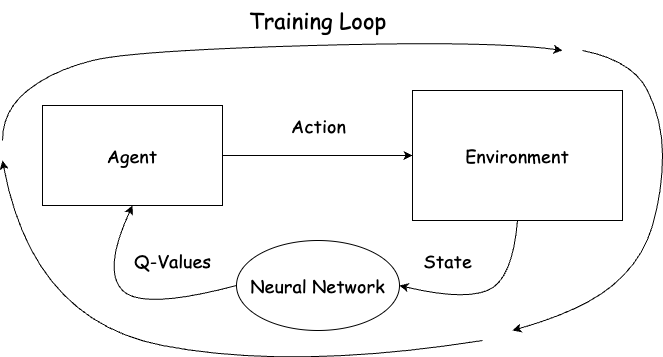Free Tips To Picking An AI Agent Site For Business
Free Tips To Picking An AI Agent Site For Business
Blog Article
Ai Agents Are A Great Method To Eliminate The Chance Of Making Mistakes In Financial Operations That Are Manual.
Here are 10 tips for businesses on how to reduce errors in financial transactions by utilizing AI agents.
1. Automated Data Entry
AI eliminates data entry errors by:
Making use of OCR and NLP to extract information from invoices, receipts, and other financial documents.
Data can be synced directly to the system for financial transactions, removing manual input.
2. Smart Validation Rules
AI ensures data accuracy by:
Cross-referencing inputs are based on predetermined guidelines, historical data or external sources.
Error detection in real-time, for example duplicate entries, mismatched totals or invalid formats.
3. Use Real-Time Anomaly Detection
AI identifies discrepancies by:
Monitor financial transactions to identify any unusual patterns or anomalies.
Informing users about fraud prior to the error gets worse.
4. Standardize Financial Processes
AI assures consistency by:
Automate repetitive tasks such as tax calculation, invoice generation, as well as journal entries.
Reduces variability between teams caused by manual processes.
5. Utilize Predictive Analytical
AI minimizes forecasting errors by:
Forecasting cash flow or revenue accurately by analyzing historical trends.
Identifying areas prone to discrepancies and suggesting corrective actions.
6. Automate Reconciliation Processes
AI can improve accuracy in reconciliation of accounts through:
Automatically matching transactions between ledgers and bank statements.
Highlighting items that are not matched will help you find the problem quicker.
7. Deploy Intelligent Approval Workflows
AI reduces human oversight errors by:
Financial approvals are routed to appropriate individuals based on the pre-configured rules.
Ensure that transactions are in compliance with the criteria prior to being processed in the workflow.
8. Conduct regular data audits
AI simplifies audits by:
Verifying and monitoring financial records continuously to ensure they are compliant with the regulations.
Producing audit-ready reports with complete records of any changes and corrective actions.
9. Integrate AI into the existing financial systems
AI reduces integration errors by:
Data can be synchronized seamlessly between accounting, ERP, and CRM platforms.
To avoid data silos, mismatched entries, or other inconsistencies.
10. Train for AI Efficacy
AI tools are most effective when their users are informed.
Employees need to be trained on how AI tools can be used effectively, and the insights generated by AI.
Inspire AI to be accurate while taking critical decisions.
These strategies could help companies reduce mistakes made in manual processes, increase operational accuracy and release funds for financial planning. Follow the top rated AI agent for Customer Account Management for more tips including AI agent for access log monitoring, AI agent for customer communication, AI agent for billing quality control, AI agent for product review requests, AI agent for software development, AI agent for purchase order compliance, AI agent for credit memo application, AI agent for expense reporting, AI agent for quality monitoring, AI agent for nps collection and more.
Ai Agents Are A Great Method To Detect And Manage Fraud.
AI can be utilized to identify fraud in financial transactions and manage risks. Here are 10 ways to use AI.
1. Real-Time Transaction Monitor
AI agents are able to detect fraud by:
Continuously monitoring financial transactions in real time.
Make sure to mark transactions that are out of the ordinary, for example, large transactions, transactions that have a rapid timing, or other unusual transactions.
2. Anomaly The detection
AI helps identify unusual behaviors through:
Machine learning algorithms are utilized to study transactional data from the past and identify the outliers.
Recognizing patterns of fraud, such as a lack of payment and sudden increase in spending or repeated inability to pay.
3. Predictive Risk Assessment
AI can predict future risk by:
Analysing previous data to assess the likelihood of certain financial frauds or risks.
Marking accounts or transactions with high-risk profiles on the basis of previous incidents.
4. Biometrics based on the behavior of individuals
AI agents can analyse user behavior in many different ways.
Monitoring the way users interact with financial platforms (e.g. typing speed, mouse movements).
Recognizing when odd or inconsistency behaviors occur, indicating potential identity theft or access to your account that is not authorized.
5. Automated Alerts in case of Suspicious Behavior
AI gives instant alerts via:
Notifying compliance and risk management officers of suspicious activity.
Automated workflows can be activated, such as accounts locking out and fraud investigations.
6. Credit Scoring and Fraud Risk
AI helps evaluate customer creditworthiness by:
Predicting the likelihood of default or fraud by studying the financial history of customers.
Credit scores are constantly changing and are constantly changing based on activity. This helps businesses to control the risk of lending or terms.
7. Natural Language Processing (NLP) for Document Fraud Detection
AI can recognize fake documents:
Financial, contract and invoice documents must be checked for errors, altered data, or forged information.
NLP algorithms can detect contradictions between the text and the context. This could be an indication of fraud.
8. Screening of Customers and Vendors
AI helps prevent fraud
Conducting background checks of vendors and customers by using AI-driven analyses of public records, financial histories, and social media profiles.
Flagging high-risk entities for more careful review prior to concluding contracts or transactions.
9. Monitoring Compliance
AI ensures regulatory compliance through:
Checking financial operations continuously against compliance and regulations.
Automating audits to ensure compliance, and also reporting, helps companies find and prevent fraud in the financial sector.
10. Machine Learning to Enhance Fraud Detection Continuously
AI agents improve over time by:
Machine learning allows for fraud strategies to be modified and improved.
Continuously training on new data in order to improve fraud detection models and reduce false positives.
By incorporating AI to detect fraud and risk management, companies will be able to protect their finances, abide with regulations and stay ahead of the curve. This can improve security, efficiency in operations, and overall business performance. View the most popular AI agent for Service Level Agreement Monitoring for website examples including AI agent for vendor onboarding, AI agent for customer inquiries, AI agent for clause analysis, AI agent for access log monitoring, AI agent for policy change notifications, AI agent for litigation support, AI agent for performance documentation, AI agent for insurance clAIms processing, AI agent for supplier consolidation, AI agent for policy adherence and more.
Ai Agents Can Be A Fantastic Way For Businesses To Comply With Regulations And Compliance.
There are a variety of ways AI agents can help companies comply with regulations and meet compliance requirements in financial operations.
1. Automating the Reporting of Regulatory Information
AI agents can streamline reports by:
Automatically produce compliance reports as required by regulatory agencies.
Ensure that all documents required are submitted in time, which reduces the risk of fines due to late submissions or for non-compliance.
2. Real-time Monitoring and Analysis of Transactions
AI assures compliance with anti-money-laundering (AML) and Know-Your-Customer (KYC) through:
Continuous monitoring of financial transactions for the detection of suspicious activities.
The marking of transactions that may violate compliance rules (such as those that are unusual or large transactions or cross-border payments which require extra scrutiny).
3. Automated audits for validation of data
AI agents assist in audits through:
Automated checks are used to confirm that financial records and transactions are in line with internal policies and rules.
Complete and accurate financial information. Be alerted to any discrepancies or mistakes which could cause compliance issues.
4. Security and Privacy of Data
AI can help meet data protection regulations (e.g., GDPR) by:
The encryption of sensitive information about customers and transactions to ensure that it is safe to store and transmit.
Automatically regulating consent preference to ensure that customer's personal information is only used according to the legal requirements.
5. AI-powered Fraud Detection
AI assists in preventing fraud:
Examine transaction patterns on a regular basis for suspicious transactions and fraud which may violate financial regulations.
Machine learning algorithms assist in predicting and detect potential fraud risk. This helps reduce the risk of a violation of legal or financial standards.
6. Modifications to the Regulatory Framework Detection
AI keeps businesses current through:
Check for changes to relevant financial regulations, such as taxes and reporting obligations.
Automatically continuously updating internal processes and systems to remain compliant with the latest regulatory changes.
7. KYC (Know Your Customer) and AML Compliance
AI helps to ensure compliance:
By automatizing the identification and verification process of customers, businesses can adhere to KYC regulations.
Comparing the behaviors of customers to known risk profiles can help detect money laundering.
8. Risk Management and Assessment
AI enhances compliance by:
Predicting and assessing the risks of compliance constantly by analyzing historical data such as financial transactions, external factors, etc.
Recommending a plan to minimize identified risks and ensure conformity with the regulations.
9. Document and Contract Analysis
AI helps improve compliance by:
Utilizing natural processing of language (NLP) to review contracts, agreements as well as other legal documents to ensure compliance with regulatory standards.
Automatically flagging clauses or terms that could be in violate legal requirements, helping businesses avoid violations.
10. Tax Compliance Automatization
AI helps tax compliance by:
Automating the calculation and filing of tax returns, ensuring that businesses follow tax laws and meet deadlines.
Examining transaction data to discover tax opportunities, such as deductions, exclusions, or other tax related benefits, while avoiding errors that could lead to penalties.
Companies can be aware of any regulatory changes using AI agents in order to guarantee strict compliance. They can also lower the chance of errors or errors. AI's capacity to automate, monitor, and change to meet the demands of changing times is an essential instrument for ensuring compliance with regulations in the financial sector. Read the top AI agent for Intellectual Property for site tips including AI agent for customer account management, AI agent for cash management, AI agent for treasury operations, AI agent for patent filing preparation, AI agent for customer support operations, AI agent for feedback request notifications, AI agent for accounts payable management, AI agent for content creation, AI agent for knowledge base management, AI agent for profile update notifications and more.